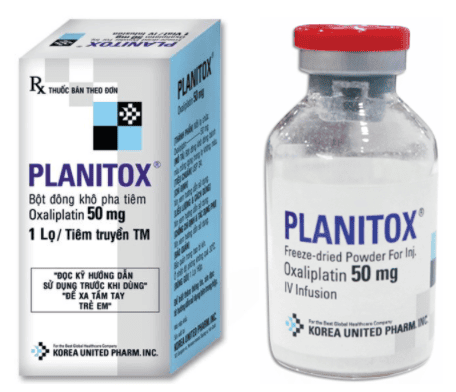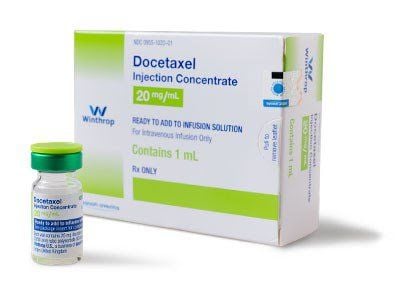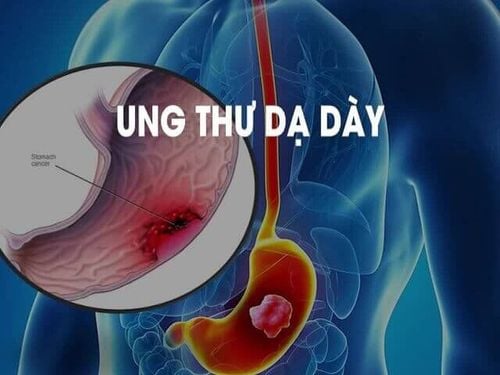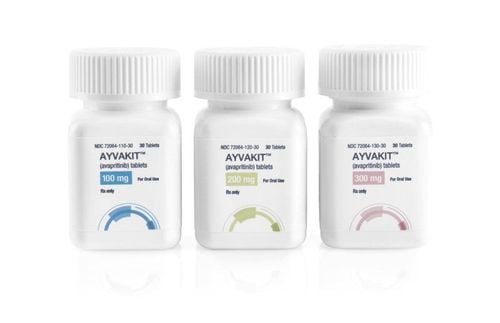This is an automatically translated article.
Posted by Doctor Mai Vien Phuong - Department of Examination & Internal Medicine - Vinmec Central Park International Hospital
Stomach cancer is a multifactorial cancer that is numbered among its causes, both environmental and genetic. It is mainly diagnosed in South America and Southeast Asia, where it shows the highest probability rates and is diagnosed relatively rarely in Western and North American countries.
1. Why is eating and drinking related to stomach cancer?
Although the molecular mechanisms leading to gastric cancer development are only partially known, three main causes have been well characterized: Helicobacter pylori (H. pylori) infection, a diet rich in foods salt and/or smoked and red meat, and epithelial cadherin (E-cadherin) mutants. Unhealthy diet and H. pylori infection may induce genotypic and phenotypic variation of gastric cancer cells, but their effects may be influenced by a diet rich in vegetables and fresh fruit. Many authors have recently focused their attention on the importance of a well-balanced diet, recommending a necessary eating education starting in childhood.
The stomach is one of the first organs in contact with food, after the lining of the mouth and esophagus, performing the second step of mechanical and chemical digestion. The link between food and stomach cancer development has largely been studied. Many authors have reported that reliable causes of stomach tumors are high intake of red meat, salted and smoked foods. These dietary habits are a source of potentially carcinogenic compounds such as N-nitroso compounds, polycyclic aromatic hydrocarbons, and heterocyclic amines.
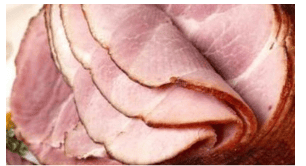
2.Eating habits and rates of stomach cancer in countries around the world
In 1990, Tsugane et al published their results highlighting that the Japanese population living in Hawaii showed a lower incidence of stomach cancer, if compared with the Japanese population in Sao Paulo, Brazil. Brazilian dietary habits include foods with a high N-nitrogen potential such as grilled red meat and fish, crustaceans and fried vegetables with a lot of salt.
Other studies focusing on the link between stomach cancer and salt intake analyzed salt excretion in 24-hour urine samples of subjects 75 years of age and younger and it found a link nearly linear correlation between the cumulative mortality from gastric cancer in five different regions of Japan. Furthermore, Okinawa, the prefecture with the lowest stomach cancer mortality in Japan, has a dietary habit that includes the lowest salt intake in the whole of Japan. Thus, the association between gastric tumors and salted foods has been confirmed by various ecological and epidemiological studies, but the details of the biological mechanisms involved are still unclear. .
3. Concurrent harm of high salt intake and H.pylori . infection
An important role seems to be played by concomitant H. pylori infection. In 2007, Loh et al. published an interesting paper in which they showed that a high-salt diet can enhance the ability of CagA to migrate to the gastric epithelium, increasing the likelihood of H. pylori and, therefore, power metabolism. Previous experiments in Mongolian gerbils infected with H. pylori showed that high salt intake causes hyperglycemia.
Others have found that increased gastrin secretion may contribute to epithelial cell proliferation during concomitant H. pylori infection. Finally, it was found that salt was able to identify changes in the viscosity of gastric mucus, allowing the N-nitroso compounds to better perform their mutagenic effects. Therefore, an effective prevention against gastric cancer development can be represented by low intake of salted foods.

4.The harmful effects of drinking too much alcohol and smoking
Heavy alcohol consumption and smoking may also be considered risk factors for gastric tumours, although some contrasting data have been published. It can be inferred that since alcohol can cause chronic gastritis and smoking contributes to the absorption of mutagenic compounds, both can be eliminated by a generally healthy lifestyle.
However, it should be pointed out that heavy drinking alone has been shown to be directly correlated with an increased risk of stomach cancer, whereas it has not been found in the case of light or moderate drinking. The preventive effect of a healthy lifestyle, with moderate physical activity, and reduced intake of alcohol, fat, red meat and salted foods is well established.
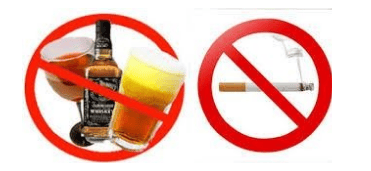
5.The role of fresh fruits and vegetables
Preventive strategies must include consumption of fresh fruits and vegetables, which appear to have a protective role in the development of stomach cancer. Different authors focused their attention on tomatoes, broccoli, citrus fruits, and pomegranates because of their antioxidant, cytostatic, and anti-inflammatory properties. Tomato ingestion reduces micronucleated polychromatin red blood cells and lipid peroxidation, and enhances antioxidant status in Swiss rats treated with N-methyl-N'-nitro-N-nitrosoguanidine (MNNG).
Micronucleated polymorphonuclear erythrocytes are a direct indicator of chromosomal damage, while the end product of lipid peroxidation can be mutagenic and carcinogenic. Thus, tomato consumption showed contrasting effects on some of the most carcinogenic compounds, namely MNNG. In addition, the combination of lycopene, a carotenoid abundant in tomatoes, and S-allylcysteine, an organosulfur that can be found in garlic, can modulate the Bcl2-Bax-Bim apoptosis pathway, to reduce the likelihood carcinogenicity of MNNG and sodium chloride in the stomach of Wistar rats. It can then be concluded that dietary habits that include tomatoes can help prevent the development of stomach cancer, because they can reduce the overall levels of the carcinogen and stimulate the baby's stomach. apoptotic pathway in gastric cancer cells.
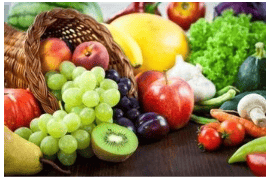
6.The role of citrus fruit
Citrus fruits appear to be highly preventive because of their ability to inhibit endogenous N nitrification in the stomach and epidemiological studies corroborate this hypothesis. The mechanism by which they cause this inhibition is still to be investigated, but it is thought that they may be effective in blocking both acid-catalyzed nitrification (ACN), typical of regions of high high-risk and by biocatalytic nitrification (BCN). ACN occurs when the gastric environment has an acidic pH, while BCN occurs at a near-neutral pH, so the nitrification of N shows independent of gastric pH, but is closely related to the substance. food intake. However, the preventive role of citrus fruits is not limited to the reduction of this phenomenon, but also to the induction of G2/M cell cycle arrest in the gastric cancer cell line AGS, to suppress CD74, a H. pylori urease adhesion molecule, and disrupts the associated ERK1/2 activation pathway in the gastric cancer cell line NCI-N87. Apoptosis through caspase-3 activation was also found.
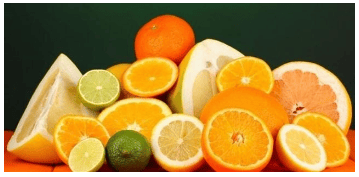
7.The role of broccoli
It is notable to refer to an article published in 2004 describing an epidemiological investigation of Japanese men, in which it was shown that chronic atrophic gastritis is often the first step in Tumor changes in the stomach were more frequent in men who ate broccoli once or more per week, compared with those who ate broccoli less often.
The same authors have been surprised with the data obtained. They suggest that a more accurate diagnostic method for chronic atrophic gastritis, than identifying the pepsinogen I and II sera they used, and a more accurate assessment of broccoli intake would must be done, as they only take into account the quantity/week. consumed, rather than the exact amount. Furthermore, a study published in 2008 did not show a significant protective role of fruits and vegetables on gastric cancer development.
However, this study was conducted in the United States, which has a well-nourished population. This comment was also recently made by Key in a recently published review in which the author discussed the protective effect of fresh fruits and vegetables on cancer development. letters. He focused his attention on the importance of eating at least moderate amounts of fresh fruits and vegetables, but also taking care to avoid being overweight, foods high in salt, and drinking a lot of alcohol.
Comparative reports on the use of fresh fruits and vegetables in preventing stomach cancer, should not be taken as a recommendation to ignore consumption of this food. Instead, experimental evidence showing that various compounds in fruits and vegetables can activate apoptotic and cytostatic pathways and inhibit H. pylori adhesion, which would have to encourage replacement. change unhealthy lifestyles to healthier habits.
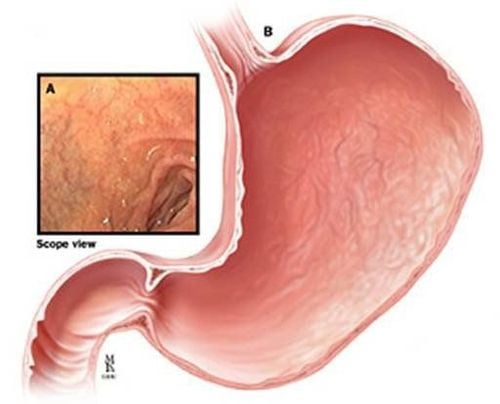
8.Conclusion
To date, gastric cancer is one of the most lethal tumors, especially in South America and Southeast Asia, where the frequency and mortality are highest. Rare cases of HDGC are caused by CDH1 mutations, and their prevention is above all based on ongoing monitoring, often after an actual mutational diagnosis.
The number of hereditary non-stomach cancer among predisposing factors for both H. pylori infection and unhealthy diet include high intake of salted and smoked foods, red meat and alcohol and reduced intake of vegetables and fresh fruit. Various studies have pointed to the molecular basis for the preventive effects induced by a healthy diet. More specifically, it has been found that cruciferous plants help inhibit H. pylori infection and subsequently its mutating power. On the other hand, tomatoes, garlic and citrus fruits can reduce N-nitrosation and induce apoptosis and cell cycle arrest at the G2/M phase, respectively. Therefore, consuming more vegetables helps to prevent and stop the phenomena caused by both salted and smoked foods and red meat, and by H. pylori infection.
Above all, future perspectives regarding gastric cancer prevention are focused on improving strategies against H. pylori and exploring the molecular mechanisms by which a healthy diet can can function. Recent articles highlight the possibility of alternative targets for the management of bacterial infections and various parameters to define a truly nutritious and balanced diet. Recently, a review written by Nagini provided a fruitful summary of all of these last bottom lines, offering helpful suggestions for further research directions.
Gastrointestinal cancer screening is a scientific and effective measure for early detection of gastrointestinal cancers (esophageal cancer, stomach cancer, colon cancer) and providing a good treatment plan. best. Currently, Vinmec International General Hospital has a package of screening and early detection of cancers of the gastrointestinal tract (esophagus - stomach - colon) combined with clinical and paraclinical examination to bring the most accurate results. maybe.
When screening for gastrointestinal cancer at Vinmec, you will receive:
Gastrointestinal specialty examination with an oncologist (by appointment). Gastroscopy and colonoscopy with an NBI endoscope under anesthesia. Complete peripheral blood cytology (by laser counter). Automated prothrombin time test. Automated thrombin time test. Activated Partial Thromboplastin Time (APTT) test using an automated machine. General abdominal ultrasound
Please dial HOTLINE for more information or register for an appointment HERE. Download MyVinmec app to make appointments faster and to manage your bookings easily.





